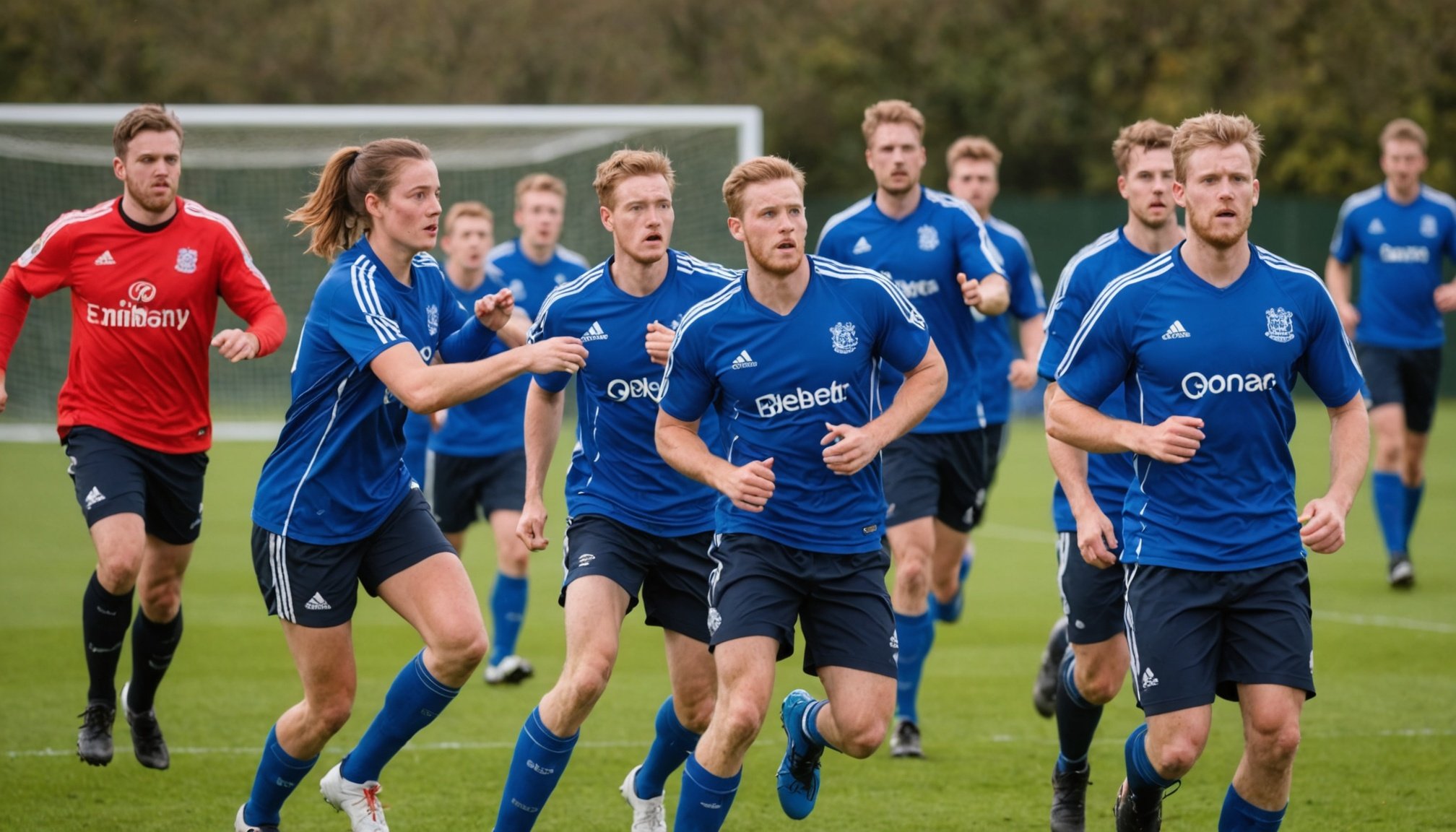Key Mental Well-Being Benefits of Team Sports Participation in the UK
Engaging in UK team sports offers substantial mental health benefits, notably improving psychological wellbeing. Evidence-based research consistently highlights reductions in anxiety and depression among participants. This is partly explained by the structured physical activity itself, which stimulates endorphin release, enhancing mood while alleviating stress.
Beyond physiological effects, the social support found within UK team sports environments plays a critical role. Being part of a cohesive group nurtures a sense of belonging, reducing feelings of isolation and fostering emotional resilience. Such interactions also encourage shared goals and collective motivation, strengthening overall mental health.
In parallel : How can you find the best sports coaches in the UK for fitness?
Participation in team sports prominently boosts self-esteem through mastery of skills, recognition from peers, and accomplishment in competition. The resulting improved mood and psychological wellbeing reflect both the physical demands met and the supportive social context. These mental health benefits extend across age groups, making team sports a practical and evidence-based approach to enhancing mental health in the UK population.
Social Connections and Community Support
Building a strong social connection through team sports fosters a genuine sense of belonging. Participating in group activities like football, rugby, or netball creates opportunities to forge lasting friendships. These sports naturally encourage communication and cooperation, essential ingredients for nurturing social bonds.
In the same genre : How do UK sports events support local economies?
Community-based teams also act as vital hubs for enhancing community ties. When people come together regularly, they develop mutual support networks that extend beyond the playing field. This interaction can significantly reduce feelings of loneliness, contributing to emotional well-being.
For instance, joining a local rugby or netball team helps individuals feel included regardless of age or background. The shared goals and teamwork promote a culture of inclusiveness, making everyone feel valued. Through these shared experiences, players become part of a community where support and encouragement thrive.
Ultimately, team sports serve as powerful platforms for connecting people, promoting unity, and embedding individuals within an active, supportive community.
Emotional Resilience and Stress Management
Building emotional resilience is crucial for effective stress reduction and maintaining overall emotional health. Engaging in collective activities promotes the release of endorphins, the body’s natural mood boosters, while helping regulate stress hormones like cortisol. This biochemical balance facilitates improved coping strategies in daily life.
Peer support plays a vital role in managing the emotional rollercoaster of wins, losses, and setbacks. Sharing experiences in a supportive environment teaches individuals to handle challenges with greater calmness and perspective. This shared resilience strengthens the ability to bounce back from difficult situations.
Moreover, the social interaction inherent in group settings enhances emotional health by providing a sense of belonging and mutual understanding. Such environments foster an atmosphere where coping strategies are not only learned but reinforced through collective encouragement. This community dynamic is a powerful tool in stress reduction, allowing individuals to feel supported rather than isolated during emotionally taxing moments.
Expert Insights and Supporting Evidence
Recent scientific studies from the UK highlight that participation in team sports significantly benefits mental health. Research demonstrates that team environments foster a sense of belonging and purpose, reducing symptoms of anxiety and depression. One leading UK study found that adolescents engaging regularly in team sports reported better emotional resilience compared to their non-participating peers.
Mental health professionals underscore these findings. Dr. Emily Hart, a clinical psychologist specializing in youth well-being, states, “The social interaction and shared goals inherent in team sports create a supportive framework that enhances mental health.” Coaches, too, observe improvements in confidence and stress management among players actively involved in team settings.
The NHS reinforces such expert opinions, advising physical activity in groups as an effective strategy to boost mood and well-being. UK mental well-being organisations recommend incorporating team sports into daily routines to harness both physical and psychological benefits. By combining evidence from scientific studies, expert commentary, and official guidance, it becomes clear that team sports serve as a valuable tool to improve mental health outcomes across different age groups.
First-Hand Experiences and Testimonials
Real-life examples from UK athletes offer valuable insights into the impact of mental health awareness in team sports. Participants consistently highlight how open conversations about mental well-being help reduce stigma and foster trust within their teams. One participant described feeling more supported and motivated after their coach encouraged a culture of openness.
Coaches, too, share participant stories that underscore the benefits of integrating mental health practices into training routines. They observe improvements in focus, resilience, and overall team morale when athletes feel their mental health is prioritized alongside physical fitness.
Mental health practitioners working with sports teams provide further testimonials, emphasizing how tailored support plans amplify positive outcomes. For instance, an athlete’s anxiety reduced significantly after adopting mindfulness techniques recommended during sessions.
These illustrative anecdotes collectively demonstrate a clear trend: promoting mental health awareness in UK team sports not only enhances individual well-being but also strengthens team cohesion. Such testimonials serve as compelling evidence for organisations aiming to embed comprehensive mental health strategies within athletic programs.
Getting Involved in UK Team Sports for Mental Well-Being
Joining team sports is a powerful way to boost mental well-being through social connection and physical activity. For those interested in joining team sports, the UK offers numerous clubs that cater to all skill levels and ages, making access straightforward and inclusive.
To begin with, exploring local UK clubs through community centres, sports facilities, or online directories is a practical first step. Many towns have websites listing team sports opportunities, often specifying which sports welcome beginners. For example, football, netball, and rugby clubs frequently offer training sessions designed to encourage participation. This inclusivity supports people of varying abilities to feel comfortable and involved.
For newcomers, participation tips include attending trial sessions, asking questions about coaching styles, and choosing a welcoming environment that suits your pace. It’s important to communicate with club coordinators to understand schedules and any equipment needs. Whether you’re young or older, many UK clubs aim to provide adaptive options, ensuring that everyone’s mental well-being benefits from engaging in team sports.
The combination of physical exercise and social interaction found in team sports can substantially reduce stress and enhance mood, making joining team sports in the UK an excellent choice for improving mental health.



